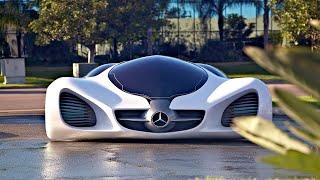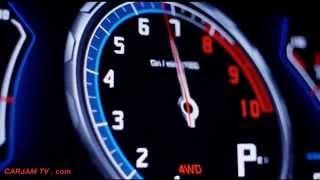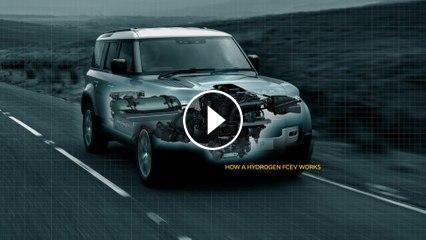Jaguar Land Rover is developing a prototype hydrogen fuel cell electric vehicle (FCEV) based on the new Land Rover Defender, with testing scheduled to begin this year.
The FCEV concept is part of Jaguar Land Rover’s aim to achieve zero tailpipe emissions by 2036, and net zero carbon emissions across its supply chain, products and operations by 2039, in line with the Reimagine strategy announced last month.
FCEVs, which generate electricity from hydrogen to power an electric motor, are complimentary to battery electric vehicles (BEVs) on the journey to net zero vehicle emissions. Hydrogen-powered FCEVs provide high energy density and rapid refuelling, and minimal loss of range in low temperatures, making the technology ideal for larger, longer-range vehicles, or those operated in hot or cold environments.
The FCEV concept is part of Jaguar Land Rover’s aim to achieve zero tailpipe emissions by 2036, and net zero carbon emissions across its supply chain, products and operations by 2039, in line with the Reimagine strategy announced last month.
FCEVs, which generate electricity from hydrogen to power an electric motor, are complimentary to battery electric vehicles (BEVs) on the journey to net zero vehicle emissions. Hydrogen-powered FCEVs provide high energy density and rapid refuelling, and minimal loss of range in low temperatures, making the technology ideal for larger, longer-range vehicles, or those operated in hot or cold environments.












Comments